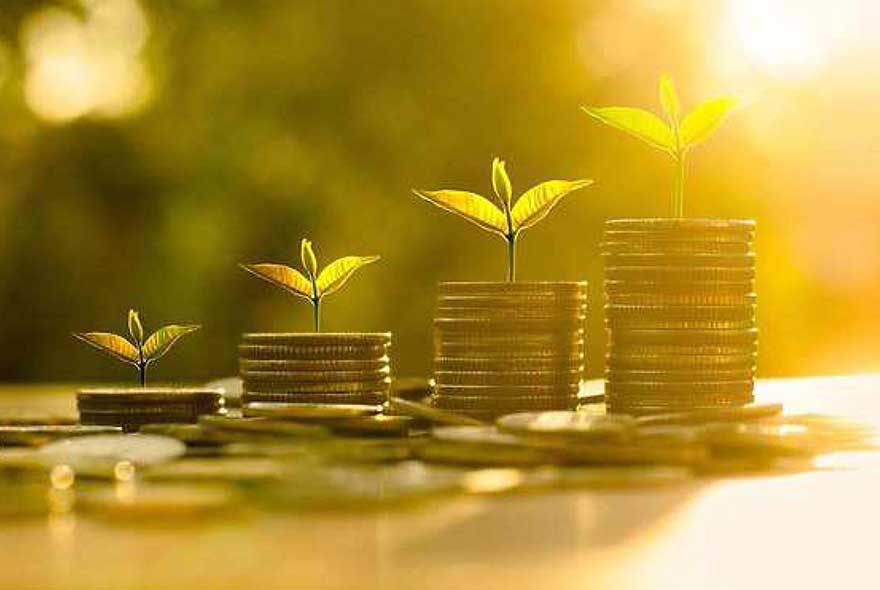How can natural capital be measured, integrated at its fair value in national and corporate accounts, and reflect the impact of environmental risks in financial regulation? The stakes of this question are high: to encourage the rise of investment in natural assets. With one question in the background: how can responsible investors be encouraged to engage in the financing of alternative assets?
N’To Mr Trump's displeasure and his climatosceptic and ecocidal decrees, the accelerating erosion of biodiversity and uncertainties about the impacts of climate change threaten the ability of human societies to produce wealth. The challenge for environmental policies is quite simply the sustainability of a decent human life on Earth.
Yet nature remains insufficiently taken into account in economic choices. Whole swathes of this wealth are not counted and thus risk being irreversibly wasted. This is the observation of the Office of the Commissioner General for Sustainable Development in an publication of the series Thema " Natural capital, the missing values of prosperity ".
The authors state that " Growth and environment are not mutually exclusive. The idea that one should "grow first and clean up later" the environmental damage inevitably caused by growth is not a viable option. The least costly strategy is one that places nature conservation at the heart of the wealth creation process. ".
Nature must resolutely become the engine of growth
This is one of the challenges set by the United Nations sustainable development goals. Achieving this goal implies both a profound change in the ways of thinking that guide economic policies and an overhaul of the "social contract" that must anchor social well-being on a principle of justice and encompass the preservation of the ecological foundations of human activity. The challenge is not a small one; it is both a technological and a civilizational one. It requires the invention of new ways of moving, housing, food, energy production, land use planning and the redistribution of wealth. All these challenges have the potential to create jobs, wealth and profits.
New conventions for measuring wealth
But this new growth model requires new conventions for measuring wealth. At the national level, a natural channel for measurement is the national accounts. Currently structured around GDP, the latter could be replaced by a generalized welfare accounting. Nature would thus enter the nation's accounts as a component of this social well-being, via the concept of "unpaid ecological costs". These are, for example, the costs of restoring air quality. These costs give rise to capital transfers from Nature to the Economy, representing a change in the ecological debt, which is not taken into account in the current national accounts.
Similarly, at the corporate level, it is also conceivable to bring nature into the dashboards that guide the decisions of boards of directors. The challenge is to introduce natural capital into corporate accounting. This will require the construction of new accounting rules, in terms of depreciation or capital increase, which will make it possible, for example, to better integrate biodiversity issues into the strategy of organizations.
Finally, at the regional and global level, an innovative way to bring nature into economic valuation systems would be for the authors to expand central bank asset purchase programs to include environmental assets, including carbon assets that would reflect the value of climate stabilization. Since central bank balance sheets sanction what counts in the wealth of nations, natural assets could be held alongside gold or foreign currencies.
A monetarization of nature?
Faced with these ideas, some voices point out the danger of monetarizing nature. They point out the risks of privatization of nature and inevitably of speculation. They agree, however, with the idea of implementing legal and economic measures to counter the growing threats to nature.
At the heart of the controversy are all the misunderstandings surrounding the concept of "natural capital". The authors of the report point out that it is interpreted alternatively as a new factor in the production function, a new element of social welfare or a new price via instruments for valuing externalities. They point out that " it is not capital that can be appropriated and traded on a market ». Under no circumstances can monetarization claim to reveal an intrinsic value of nature. « It's a way to give nature back its "dignity"... "they write.
Part of the solution is to overcome the reluctance to "monetize" nature. It is undisputed that GDP is an imperfect indicator, and nature is a decisive ingredient of growth. The need for action argues for a rapid, if imperfect, stabilization of both accounting and biophysical conventions for measuring natural capital. Public policy needs to integrate the missing values of this capital. Private actors need credible natural capital values to trigger ecological transition investments.
The challenge is to encourage responsible investors to engage in the financing of alternative assets and to develop the "green" economy.
Stabilize measurement conventions
The report refers to various public valuation instruments such as incentive tools such as taxes and allowance markets. These may also include specific ecological pricing mechanisms for nature and biodiversity protection such as payments for environmental services. Voluntary instruments too, such as providing information to consumers via labels and product labelling, can also be mobilised.
However, these instruments are by their very nature subject to reservations that limit their effectiveness. The authors of the dossier are aware of this and mention other instruments that have yet to be invented in order to accelerate the redirection of investments towards nature.
These investments are indeed exposed to significant risks. Moreover, it is virtually impossible to redeploy the capital in which the investments were made. The main obstacle to their financing lies in the mismatch between their social return and their private return. To the extent that these investments partly produce non-market public goods, they do not appear to be directly profitable for a private investor, although they are profitable for the community.
However, there are some interesting avenues through, for example, the greening of financial regulation.
As it stands, by imposing the same prudential constraints on investors for an ecological transition investment as for a comparable conventional long-term investment, financial regulation does not take into account a risk factor that is nonetheless important for the financial system. It thus tends to penalise green investment. However, "... Investing in sustainability should be seen as a resilience factor and not as a risk factor. ".
In order to mobilise savings towards the ecological transition, public authorities should aim to create innovative financing mechanisms that converge investors' expectations towards a common vision of what is desirable and profitable in the long term. Financial creativity could be usefully harnessed, in particular to create new financial assets backed by the "guardian values" of environmental externalities.
As such, the French government's decision to issue the first sovereign green bonds sends a strong signal to the financial community and is likely to trigger the rise of green finance.













